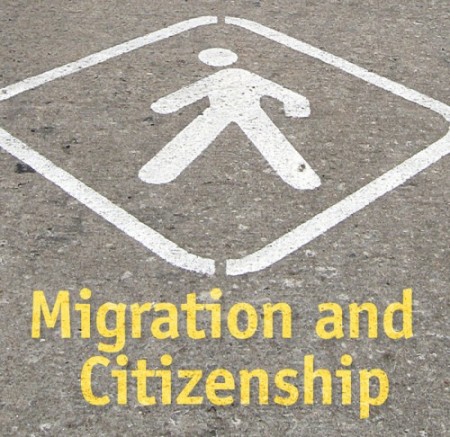In recent years there has been an increasingly systematic integration of immigration controls into a range of institutions. The ability to access healthcare, social housing, benefits and legal aid, to seek employment, open a bank account, obtain a driving license, and rent a property have each been tied to immigration status. This linkage is mediated by more than a binary between legality and illegality. The regulation of mobility through legal frameworks at the European and international level, as well as the domestic, has generated a range of rights – to reside, of abode, to work, to rent – that are shaped by the interaction of multiple statuses – “EEA national”, “asylum seeker”, “habitual resident”, “jobseeker”, “worker”, “self-sufficient person”.
The rights and entitlements of citizens, as well as migrants, are curtailed and impacted by immigration controls. A citizen cannot claim means-tested benefits without proving habitual residence, they cannot marry a non-EEA national without verifying the partnership’s legitimacy in the eyes of the state, and they cannot bring this spouse into the UK without earning over a minimum income threshold. More broadly, citizens cannot avoid immigration controls without first proving that they are not subject to them.
It is important to understand and reflect upon the consequences of these controls. However, it is also important to think about where the responsibility for their implementation lies. As immigration controls are integrated in an increasingly systematic way into the workplace, university, school, hospital, jobcentre, letting agency, registry office and bank they are pushed away from the centralised state and into the community. This entails both a diversification and a shift in the actors compelled to put them into practice on the ground. Last week’s European Court of Justice decision on the Dano v Jobcentre Leipzig case brings this into focus. For the individual who cannot be subject to formal immigration controls but who can be excluded from social benefits if economically inactive, immigration enforcement responsibilities fall not to the immigration officer but to the frontline public service worker.
Several organisations and representative bodies have condemned the continued devolution of immigration controls. Public statements issued in response to recent immigration legislation by groups including the British Medical Association, Royal College of General Practitioners, University and College Union, Residential Landlords Association and the UK Association of Letting Agents have each expressed a similar unease: that doctors / lecturers / landlords are not and should not be made into immigration officers. What is striking about these statements’ shared criticism is a focus not on control measures themselves but at where and with whom the responsibilities for their implementation lie.
The devolution of immigration controls has been accompanied by “active encouragement” from the Home Office for people to contact them with “allegations of immigration crime”, acknowledging the public to “provide the Agency with a significant amount of information” (Vine 2011:9). Since September 2012 these allegations have been recorded centrally in the National Allegations Database, re-released with an online reporting platform as the Intelligence Management System (IMS) in August 2013. According to John Vine, the Independent Chief Inspector of Borders and Immigration, the benefits of this system lie in “enabling the collection and analysis of allegations to…direct operational enforcement” (Vine 2014:2). Close to 100,000 online allegations have been made in the 15 months following the launch of IMS (Home Office 2014), whilst in 2013 almost three-quarters of these allegations were made directly by the public (Vine 2014:21).
The explicitly accusatory nature of “reporting an immigration crime”, the autonomy in choosing to do so, and the potential for anonymity granted to individuals providing information makes denunciation distinct from the devolved responsibilities outlined above. However there is clearly a relationship between these practices, not least because within an increasingly expansive regime of identity checks there is growing potential for a range of actors to become aware of an individual’s immigration status and circumstances.
For Fitzpatrick and Gellately (1996: 766) the “problem of denunciation” rests upon “big philosophical questions of loyalty and citizenship”; of duties towards to state and responsibilities of the “good citizen” (ibid. 751), and of solidarity with other members of the community and fellow human beings (ibid. 763). These are questions similarly thrown up when citizens are compelled not just to observe the law but to implement it. As immigration controls proliferate and disperse there is the potential for them to become normalised and trivialised, to be seen as “uncontroversial, and as such undeserving of close attention” (Aliverti 2014). However it also the case that an increasing number of sites and actors subject to and involved in immigration enforcement can demand confrontation with the costs and consequences of control measures.
The implementation of immigration controls challenges what will be done at the behest of the state. It bring to the fore tensions between legal obligation, professional ethics, and a personal sense of what is right and wrong. As individuals are drawn into reifying the meanings of and boundaries between different subjects and statuses of immigration controls they mediate and negotiate the relationship not just between state and migrant but between state and citizen.
This post is part of Migration and Citizenship, our series hosted in collaboration with Oxford COMPAS.
References
Aliverti A. (2014) The New Immigration Act 2014 and the Banality of Immigration Controls. Available at: http://bordercriminologies.law.ox.ac.uk/banality-of-immigration-controls/ (Accessed: Thursday 13th November 2014).
Fitzpatrick, S. and Gellately, R. (1996) “Introduction to the Practices of Denunciation in Modern European History”, The Journal of Modern History, Vol. 68, No. 4, pp. 747-767
Home Office (2014), “‘Report an immigration crime’ Freedom of Information request – 32599”
Available online: https://www.whatdotheyknow.com/request/224830/response/560110/attach/html/3/FOI%2032599%20Grove%20White.pdf.htm (Accessed: Thursday 13th November 2014)
Vine, J. (2014), “An inspection of the Intelligence Management System”
Available online: http://icinspector.independent.gov.uk/wp-content/uploads/2014/10/An-inspection-of-the-Intelligence-Management-System-FINAL-WEB.pdf. (Accessed: November 10th 2014).
Vine, J. (2011), “Preventing and detecting immigration and customs offences: A thematic inspection of how the UK Border Agency receives and uses intelligence”,
Available online: http://icinspector.independent.gov.uk/wp-content/uploads/2011/02/Preventing-and-detecting-immigration-and-customs-offences.pdf. (Accessed: November 10th 2014).









No Comment